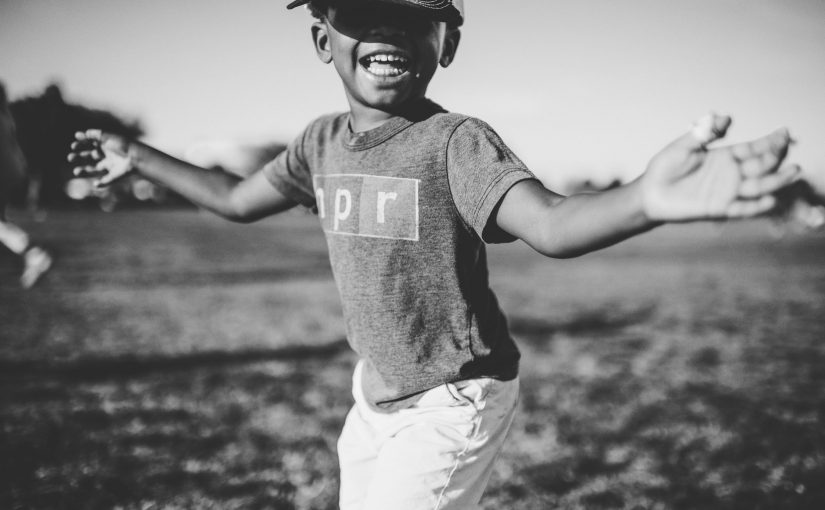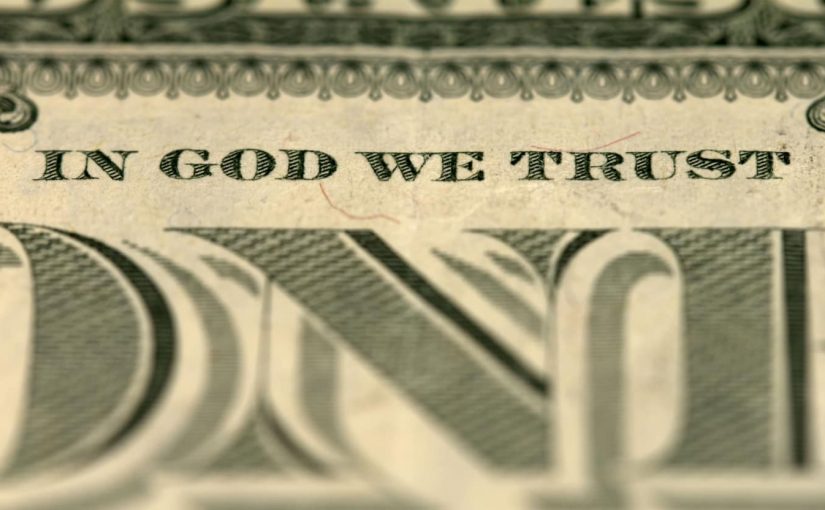I’m sure many are aware of the saying “In God We Trust”. It’s an expression that rings in my ear at this time of the Year (December) when I often find myself watching the movie ‘Miracle on 34th Street’; a 1994 American Christmas fantasy film written and produced by John Hughes. I thoroughly recommend the movie to those who haven’t yet seen it.
The part of the movie that comes to mind is the court scene towards the end of the film involving Kris Kringle who, the Prosecution allege, is falsely claiming to be Santa Claus. The Judge in charge of the case is under immense pressure from commercial interests to rule in favour of the Prosecution. He is about to do so until he is reminded, by a child, that the American dollar bill contains the words “In God We Trust”. The dollar bill has value only because The People, as a collective, have faith and trust that the US Government will honour its commitment to stand behind the currency. Without this faith, the dollar bill is worth a little less than toilet roll; unless you have a particular rough paper fetish.
Moving to the world of the real, there are a number of parallels that can be drawn from the trust and faith required to accept dollar bills as a medium of exchange.
I would like to focus on one group of public servant In Whom We Trust; the Metropolitan Police. The police have an important and powerful role in our society. I recently read a rape case on the BBC app involving a young man named Liam Allan, which serves as a reminder of the tragedy that can occur if those to whom we are supposed to trust let us down.
For those unfamiliar with the case Liam, a 22 year old University student, was charged with 12 counts of rape and sexual assault. If convicted, he would have faced 12 years in prison and been placed on the sex offenders register for life. His case was dropped three days into the trial after police were ordered by the court to hand over phone records in their possession. The messages revealed that the alleged victim had pestered Liam for ‘casual sex’ and had spoken to friends expressing how much she enjoyed their encounters. However, despite being in receipt of these messages for over 2 years, the crime prosecution service failed to disclose this evidence because there was “nothing further to disclose”. It was only after Liam’s solicitor reiterated their request on the first day in court that the information was made available.
I will leave it to readers to decide whether the crime prosecution service’s decision to proceed to trial on a ‘conviction by any means necessary’ basis irrespective of information to suggest Liam’s innocence or whether, in the words of the Prosecution barrister the decision was due to “pure incompetence”. Regardless of the conclusion drawn, this case highlights a wider issue with the Police as an institution: there are no consequences even where there is evidence to suggest negligence or worse on the part of police officers.
I struggle to find any other institution in the private or public sector where such behaviour would be accepted with so little consequence. My sister in-law, who is a social worker, would be struck off or face a custodial sentence of up to 5 years if she were found to have demonstrated similar neglect. Against this backdrop, it is difficult to argue against those who complain that there is one rule for police officers and another rule for everybody else.
As a society we also need to look at ourselves to understand whether we exacerbate the already perverse distortions that is unique to the police force. Are we so superficial that we only want to see high conviction rates, regardless of innocence, or do we want our prisons to be full of people who have actually committed a crime? It’s easy to use the conviction rate statistics as a marketing gimmick that politicians can point to as ‘proof’ that our streets are safer but it is illusory if the real perpetrators of crimes continue to live next door.
Liam’s case really does question how many cases are there of people, who like Liam, had evidence that never made it to court to support their innocence and due to police ‘incompetence’ paid the ultimate price with their freedom.
I will finish this piece with this; with power comes great responsibility. Peter Parker’s uncle knew that. Those unable to shoulder the accountability that should come with being a guardian should not be given such powers. Faith in the rule of law can only be achieved when we can have confidence In Those We Trust to both maintain the rule of law and be accountable against the same rules for which they are gatekeepers.

